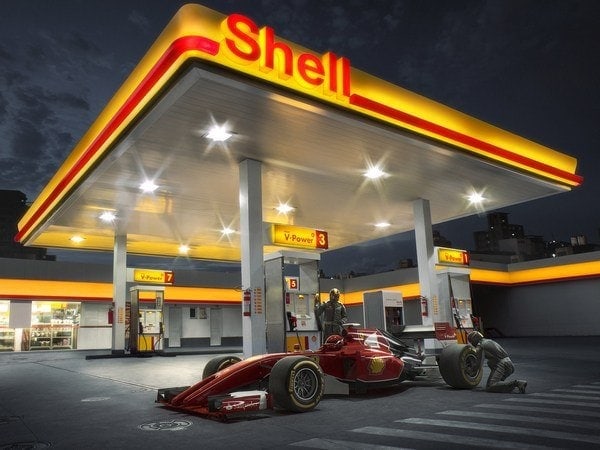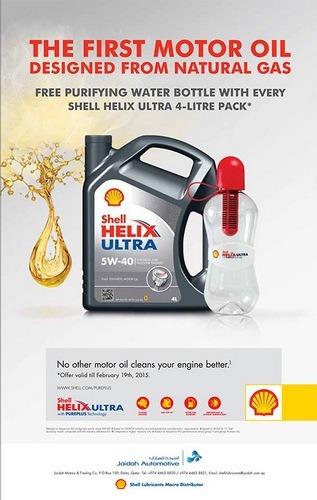The Marketing mix of Shell analyses the 4Ps of Shell, including the Product, Price, Place, and Promotions. Shell is a public company of Anglo-Dutch origins. This multinational corporation serves a global area and has its headquarters base in the Netherlands. It has been declared as one of the most valuable companies in the worldwide market. In Shell’s strategic marketing mix, the focus on store management ensures maximum customer value. Shell is associated with the gas and oil industry and was founded in 1907 by merging Shell Transport and Trading, based in the United Kingdom, with Royal Dutch Petroleum.
In 2016, it was declared the seventh-largest corporation worldwide based on revenues and as one of six supermajors related to gas and oil. In 2016, it was acknowledged as the second-largest corporation globally in the oil industry. The company has various subsidiaries, including Shell Oil Company, which provides it with the most profitable and prominent business. Shell faces competition in this field from major competitors like the following-
- BP P.L.C
- Exxon Mobil Corporation
- Chevron Corporation
- TOTAL
- Sunoco
- Amsoil
- ARCO
- Caltex
About SHELL
- Type: Integrated energy company
- Industry: Oil and gas, chemicals, renewable energy
- Founded: 1907
- Founder: Marcus Samuel
- Headquarters: The Hague, Netherlands
- Area served: Worldwide
- Key people: Andrew Mackenzie (Chairman) and Wael Sawan (CEO)
- Number of employees: 90,000
Table of Contents
SHELL Product Strategy
Shell is an integrated corporation actively involved in almost all natural gas and oil areas, including trading, power generation, petrochemicals, marketing, distribution, refining, production, and exploration. Shell is actively occupied in its downstream and upstream operations. In the year 2000, the company was involved in minor capacity activities like renewable energy, for example, wind, solar power, biofuel, and hydrogen projects. The company’s leadership in the gas industry extends to innovative solutions in liquefied natural gas globally, reflecting Shell’s commitment to sustainable energy and natural gas exploration.
The new Product Mix of Shell in 2023 is as follows (Source).
- Traditional Oil and Gas Products: Continuing its legacy oil and gas exploration, production, and distribution business.
- Renewable Energy Sources: Investment in renewable energy sources like wind and solar power.
- Low-Carbon Energy Technologies: Development of technologies aimed at reducing environmental impact and carbon footprint.
- Electric Vehicle Charging Solutions: Expansion into electric vehicle charging infrastructure.
- Hydrogen Energy Development: Focus on hydrogen as a potential energy source for future applications.
SHELL Place Strategy
Shell is a global company with a network spread over ninety countries. It produces 3.1 million barrels of oil per day. The company realizes the value of an effective distribution policy in the oil and gas industry. It has set up nearly forty-four thousand service stations in numerous parts of the world.
Petrol retailing outlets are highly competitive, and Shell has its outlets, and its products are also sold in other outlets with prior agreements. As customers do not prefer to purchase a particular brand of petroleum product, the infrastructure of outlets is designed and placed so that it proves convenient for customers to access quickly. Most of the online retailing outlets of Shell have grocery stores and ATMs for customer convenience.
Shell’s place strategy aims to expand its global footprint and embrace the energy transition. Here are five key points of their strategy:
- Global Presence: Shell maintains a widespread presence in multiple countries, offering products and services across various global markets.
- Diverse Retail Outlets: The company operates a vast network of retail outlets, including gas stations and convenience stores, ensuring widespread accessibility to its traditional fuel products.
- Investment in Renewable Energy Infrastructure: Shell is increasingly investing in renewable energy infrastructure, including wind and solar farms, to align with the global shift towards sustainable energy.
- Expansion of Electric Vehicle Charging Stations: The company is expanding its network of electric vehicle charging stations, catering to the growing market of electric vehicles.
- Strategic Partnerships and Collaborations: Shell engages in strategic partnerships and collaborations to enhance its global reach and to support its transition into more sustainable energy solutions.
SHELL Pricing Strategy
Shell’s strategy is strengthening its position as the world’s leading gas and oil industry leader. Its policies focus on offers that provide better returns and free cash flow. It aims to cut costs but not at the expense of its consumer base. Shell has decided on a pricing policy that benefits the company and its investors and clients. It has divided its products into different segments like good-quality petrol, superior petrol, and premium petrol and then has based its pricing policy accordingly. Most petroleum products are government-regulated, so there is very little you can do to price vital petroleum products.
For some products, its policy is very reasonable, and for others, it is a bit competitive when the active participation of competitors is involved in setting up base prices. It has developed a premium pricing, marketing mix, and sales strategy for premium products like premium petrol. Retailers charge higher margins on many services at their outlets, and in a few cases, they provide free services to maintain their customer’s loyalty, thus providing a suitable balance.
Shell’s pricing strategy is likely to reflect a balance between market competitiveness, cost-based considerations for consumers, and a strategic focus on transitioning to sustainable energy solutions:
- Market-Competitive Pricing: In its traditional oil and gas industry business, Shell’s pricing is expected to align with global market trends and competitive pressures in the energy sector.
- Dynamic Pricing in Response to Market Fluctuations: Given the volatility of the energy market, Shell likely employs dynamic pricing strategies, adjusting prices in response to supply, demand, and geopolitical factors.
- Value-Based Pricing for Renewable Energy Solutions: For its renewable energy offerings, Shell may use value-based pricing, setting prices based on the perceived value these sustainable solutions provide to customers and society.
- Cost-Plus Pricing for New Technologies: In pricing new technologies and innovations, Shell might adopt a cost-plus approach, ensuring the recovery of research and development costs while promoting new sustainable energy solutions.
- Premium Pricing for Specialized Services: For specialized services or products, especially in the renewable energy domain, Shell could employ premium pricing strategies, reflecting the specialized nature and adding value to these offerings.
SHELL Promotion Strategy
Shell realizes the potential of an active and positive marketing strategy and has decided to participate in matters of environmental, safety, and social responsibility. Shell Oil Company stands out for its comprehensive approach, delivering excellence in managing resources and contributing significantly to the evolving landscape of the energy sector. It wants to project itself as a brand aware of right and wrong and an organization that will take the necessary steps to create a balanced environment. The Shell logo is one of the world’s most familiar and popular commercial symbols, providing a distinctive and recognizable identity.
Brand Shell has sponsored various sponsorship deals to promote its brand and products. It has been actively involved in motorsport and marketing activities and has sponsored BRM, Ferrari, McLaren, Hyundai Motorsport, Lotus, and others. Its commercials highlighting various products and brands are broadcast on televisions and the internet and are displayed in magazines, newspapers, and holdings.
Some Recent Video ads and Print ads for Shell are:
Liked this post? Check out the complete series on Marketing Mix

